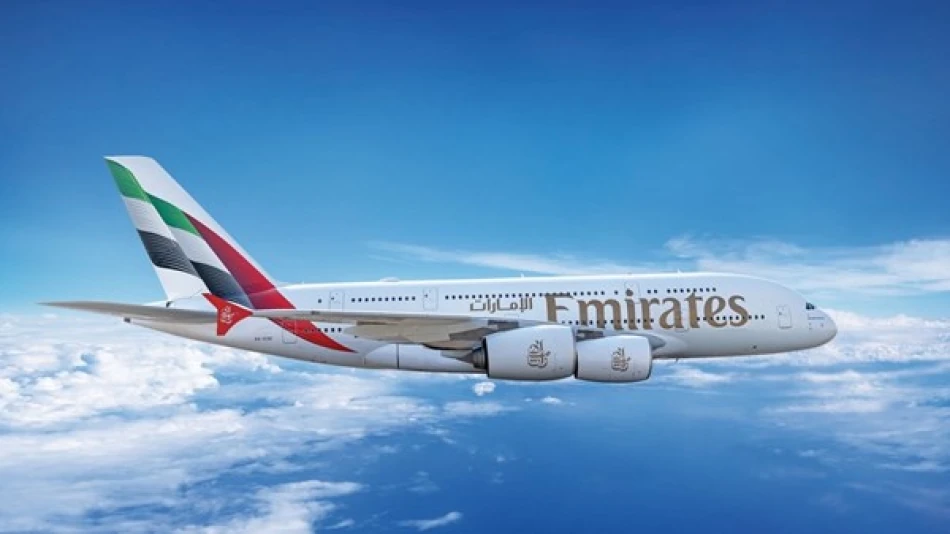
UAE Leads Forbes' List of Top Tourism & Travel Leaders in the Region for 2025
UAE Dominates Middle East Tourism Leadership as Regional Travel Sector Reaches New Heights
The United Arab Emirates has cemented its position as the Middle East's tourism powerhouse, claiming 15 spots on Forbes Middle East's 2025 list of the region's most influential travel and tourism leaders. With Sheikh Ahmed bin Saeed Al Maktoum of Emirates Airlines topping the rankings for the fourth consecutive year, the UAE's dominance reflects the broader transformation of Middle Eastern destinations into globally competitive tourism hubs driven by record investments and ambitious government strategies.
Emirates Chief Maintains Four-Year Winning Streak
Sheikh Ahmed bin Saeed Al Maktoum, Chairman of Dubai Civil Aviation Authority and CEO of Emirates Airlines and Group, retained his top position as the region's most powerful tourism leader. His leadership has guided Emirates Group to impressive financial performance, with revenues climbing 6% to $39.6 billion in the 2024-2025 financial year, while total assets reached $49.7 billion.
The sustained growth under Al Maktoum's leadership demonstrates how strategic aviation investment can anchor broader tourism ecosystems. Emirates' hub model in Dubai has become the template for other regional carriers seeking to capture transit traffic between Europe, Asia, and Africa.
Regional Competition Intensifies
Saudi Arabia's tourism transformation is evident in the second-place ranking of Fahd Hamidaddin, CEO of the Saudi Tourism Authority, followed by Qatar Airways Group CEO Badr Mohammed Al Meer in third place. This reflects the intensifying competition between Gulf states to diversify their economies beyond oil dependency.
Saudi Arabia's Vision 2030 has positioned tourism as a cornerstone of economic diversification, with the kingdom targeting 100 million annual visitors by 2030. The prominence of Saudi leadership in these rankings signals the kingdom's growing influence in reshaping regional tourism flows.
Geographic Distribution Reveals Investment Patterns
The UAE leads with 49 resident leaders on the list, followed by Saudi Arabia with 24, Egypt with 7, and Oman with 5. This distribution mirrors the flow of tourism infrastructure investment across the region, with the UAE and Saudi Arabia commanding the largest shares of new hotel, entertainment, and aviation projects.
The representation spans 10 countries across the Middle East and North Africa, indicating that tourism development has become a region-wide priority rather than concentrated in traditional hubs like Dubai and Doha.
Landmark Achievements Signal Sector Maturity
Several breakthrough developments highlight the sector's evolution beyond traditional hospitality models. In June 2025, Bandar Al-Mohanna led Nas Air through Saudi Arabia's first airline IPO on the main Tadawul market, raising $1.1 billion and demonstrating growing investor confidence in regional aviation assets.
The entertainment sector is also reaching new sophistication levels. Fernando Eiroa's launch of Real Madrid World in Dubai represents the first theme park globally branded with the football club's name, while Mohamed Abdullah Al Zaabi's announcement of Disney World and Resort on Abu Dhabi's Yas Island marks the region's first Disney destination and the seventh worldwide.
Investment Infrastructure Matures
Morocco's establishment of its first tourism project bank, overseen by Minister Fatima Zahra Ammor, with over 200 investment-ready projects signals the institutionalization of tourism development across the broader MENA region. This infrastructure approach mirrors successful models in Singapore and the UAE, where government-backed investment vehicles have accelerated large-scale tourism projects.
Market Implications for Global Tourism
The Middle East's tourism sector growth comes at a critical time for global travel patterns. As European destinations face overtourism concerns and Asian markets recover from pandemic disruptions, the Middle East offers new capacity with world-class infrastructure. The region's strategic location positions it to capture growing travel demand between emerging Asian economies and established Western markets.
For international hotel chains and tourism operators, the concentration of decision-making power among these 101 leaders creates clear partnership pathways. The presence of 9 British nationals among top regional positions also reflects the continued importance of international expertise in developing local tourism capabilities.
The Forbes rankings underscore how government-backed tourism strategies, when combined with private sector execution, can rapidly transform regional competitive dynamics in global tourism markets.
Most Viewed News

 Layla Al Mansoori
Layla Al Mansoori






